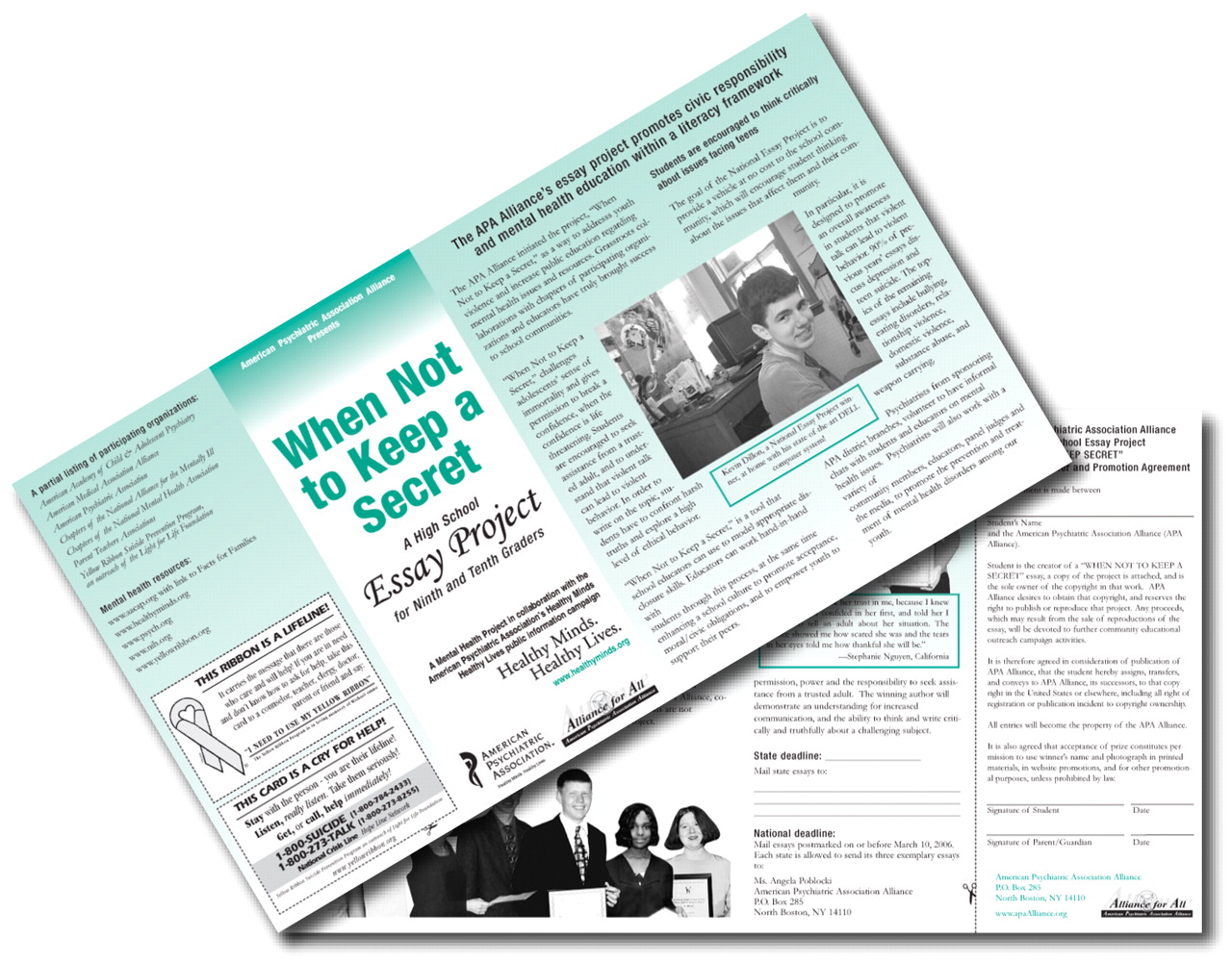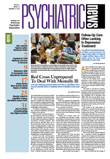The old saying, “Mighty oaks from tiny acorns grow” can certainly be applied to the APA Alliance's “When Not to Keep a Secret” essay contest.
The contest was launched by the APA Alliance in 1998 with cosponsorship by APA and the American Psychiatric Foundation (Psychiatric News, August 6, 1999), and it is now moving into its ninth school year.
As the years have gone by, an ever-wider swath of teens in 19 states have participated in the contest. And pondering the message of the contest—tell a responsible adult if you know of a friend or peer who is engaging in or threatening behavior that is harmful to the young person or others—has spurred them to write some remarkably diverse and creative essays. The essays have dealt mostly with fictional situations, but some have described dramas that the young writers experienced and where they either did or did not do the right thing, which is to tell a responsible adult about what they've heard.
Take the first-place winner of the 2005-2006 school year contest, Chelsea Ball of Lexington, Ky. Her essay was only one page, “but powerful,” in the opinion of Alicia Muñoz of San Diego, Calif., chair of the essay contest. Theresa Walton, who helped with the contest while serving as executive director of the Kentucky Psychiatric Association, agreed.“ It was short, and when I first got it, I thought, this is weird, but it was so well written!”
The basic theme of the essay was that Chelsea and a friend, Emily, had been best friends since kindergarten and always kept each other's secrets. Chelsea continued to do so even as Emily's family life unraveled and Emily became depressed and suicidal, and even as Emily ended her life. Wrote Chelsea in the last paragraph, “We were going to college together. We were going to live in the dorm together. We were going to raise our children together. We were going to die together, but I NEVER TOLD HER SECRET.”
Although the APA Alliance does not have the ability to follow up the thousands of students who have participated in the contest since its inception, those supporting it are optimistic that it is positively influencing their outlook and behavior.
For example, before Gwen Lehman became executive director of the Pennsylvania Psychiatric Society and an essay-contest supporter, she taught English. “It is difficult to get young people to think about serious subjects and to express their views and opinions,” she commented, but the essays that she and her staff have received have clearly shown that those who wrote them “had to think hard, and did think hard, about issues of loyalty to their friends and the need to sometimes break that for higher duty—to protect people they cared about.”
In the opinion of Edwina Zettler, M.D., a Lexington, Ky., psychiatrist who has helped with the contest since 2001, the real value of the contest is“ that so many are touched by so many of these issues, that it helps them talk about it.”
The Orange County (California) Psychiatric Society has supported the essay contest for the past seven years. “We have never directly interviewed essay contestants to determine actual outcomes of their essay's content,” Rimal Bera, M.D., chair of the district branch's Public Affairs Committee, said, “but with hundreds of entrants over the past seven years that have been sent in, I have great confidence that many people have had a positive outcome secondary to intervention that has occurred.”
As the essay contest gears up for its ninth school year, it is partnering with some other programs with similar goals —for example, the Yellow Ribbon Suicide Prevention Program and APA's Healthy Minds, Healthy Lives public-information campaign. An APA staff member, Muñoz said, helped redesign the essay contest brochure so that it incorporates the campaign (see illustration). Such partnerships, Muñoz believes, should extend the contest's reach and influence.
Information about the APA Alliance and essay contest is posted at<www.apaalliance.org>.▪

